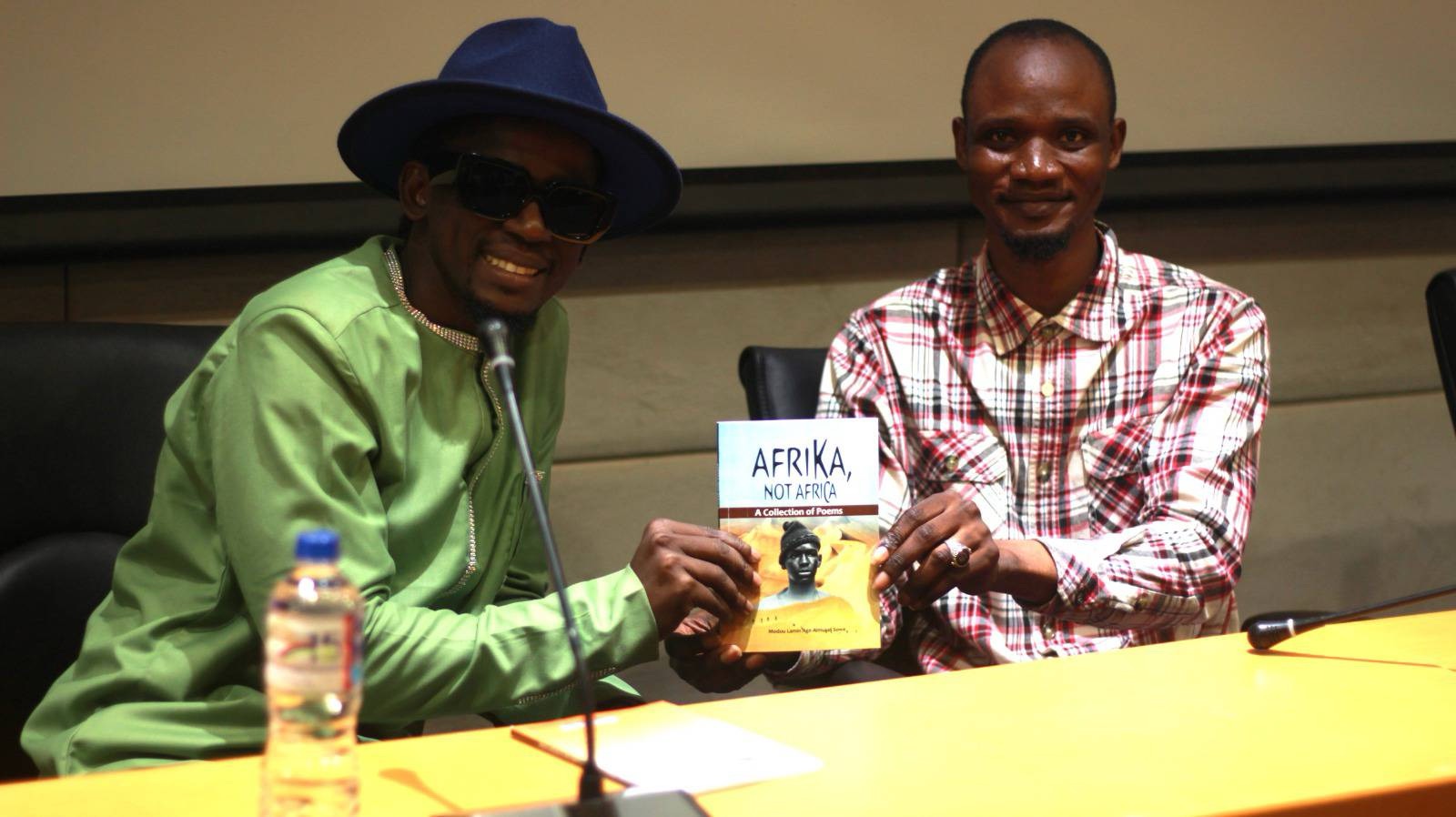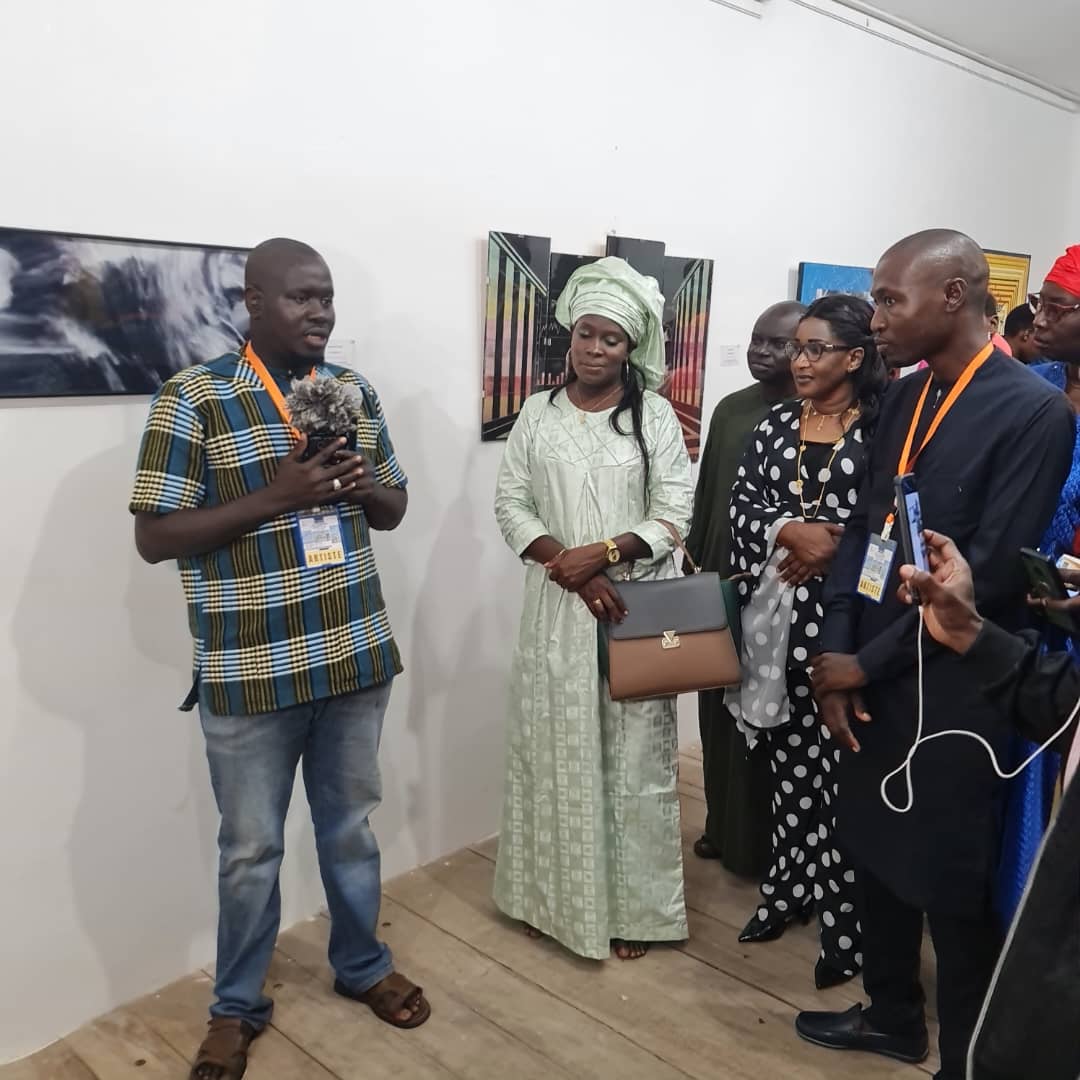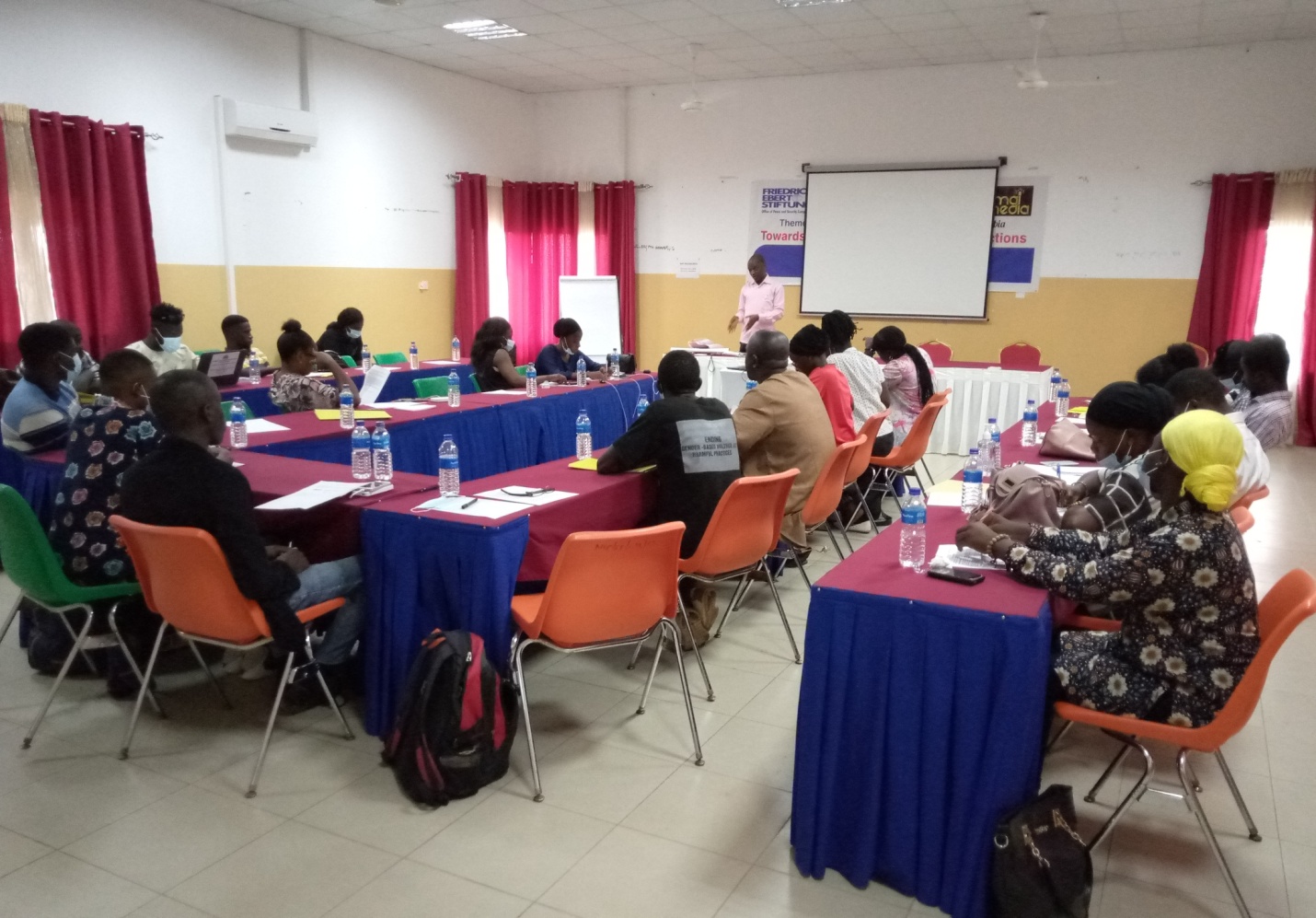Review by Hassoum Ceesay, may 2024

There are 26 poems in this anthology by our evergreen and budding writer, the tireless literary activist, master mobilizer, librarian, mentor, book entrepreneur etc etc M.L Sowe. All of us, Sowe included, can easily lose count of the number of books and articles and essay he has penned in the past ten years. His repertoire can fill a whole folder and filing cabinet. We convey our congrats to him for this copious output for Gambian literature.
Back to the book, we dare say that It contains poems that seem to address many themes and topics in no particular order. This means that for one to really soak in the contents of the book, one must read it piece by piece, poems by poem over a period.
The title poem AfriKa , Not Africa page 11-14 is supposed to set the grounds for the rest of the book. It is a good verse of Africa pessimism, Africa despondency. The poet bemoans the African experience of lost languages, dying cultures and Western education system that is making us strangers in our own bedrooms, so to say.
‘Western Education System/ Promises no Tomorrow’
Or
‘Africa lost her languages and /Knights
Now we may ask who are Africa’s Knights lost? Wee the poet gives an answer on page 31 in the poem titled A letter Poem to African Leaders where the poet celebrates Nelson Mandela, Nkrumkah, Sankara and Lumumba, who fought for African dignity and died for it.The poet Wole Soyinka ‘was jailed twice’ to show that in the cauldron of the African dictators, not even poet are spared.
This dystopic picture of the unhealthy cause and effect of tyranny in Africa does not also spare the youths. In the poem ‘Once Upon A Time’, page 15 where the poet ably weaves the effect of misrule or Big Man rule in Africa to the waywardness of youths. He writes ‘The Youth altered their norms through indiscipline/ their ignorance posted on timelines. Thus dictatorship has caused our youth to hide under social media to pass time and even do mischief.
Of course the poems are not all on politics and Pan Africanism! There are love poems, religious poems tongue twister poems like Alphabet of poetry p.54, and haunting autobiographical poems like ‘If I Wasn’t me’ page 66. The Poem ‘Wicket Journey’ page 72, and ‘The Black Devil’ page 90, are notable for contemporaneity as both discuss in beautiful diction the ongoing long play genocide of youthful Africans perishing in the seas in search of Europe. Indeed, the world press has grown inured to this mass deaths so that now its mostly outside the realm of news worthiness until the death toll reaches the most macabre heights. Indeed, this is only one of many poems that are relevant to the current discourse, making the poet quite sensitive to what goes on in the world around him. Unlike many poets, this one does not live in an ivory tower!
But the tower of language used in the poem is indeed unassailable. The diction is replete with alliteration, assonance, simile, synecdoche, oxymoron and tongue twisters, yes, tongue breaking syllables such as ‘Egypt English Eggs electrifying election energy, page 54; or the numerous puns like the one on the dark nights and dead knights of Africa. The qualities of a good poem are basically those of diction and sound. These poems have these in satisfactory quantity and quality.
The poet has personal qualities that deserve our attention before we end this review. The first I know of is endurance. He is a good example of literary endurance. He has consistently written, published and mentored many others. This is why his writings are enriched by this experience; he gives away and therefore receives copiously from the wisdom of others. Another one, the poet strongly believes in the power of literature to change people for the better. For him literature is an effective pain killer, dependable companion in times of need. Moreover, M.L Sowe is a reader. His lofty quotes that pepper his writings mean that he is a good and observant reader.
Indeed, the careful reader can only discern the tone of a man in deep earnest for Africa to realize its lofty goals to be a continent of growth and opportunity. This is why the tones of the poems range from the utterly urgent to the desperately despondent; from the routine to the loving etc.
In total, M.L is a writing project in progress. His works mature as he grows out of youthfulness into full adulthood. The poems mirror such transition. The blasting anger of earlier work are gradually receding out of this new work. This is to be expected because the writer is the man who is writing.
I want to congratulate him for always giving m the honour to do this. I hope next time, someone more capable will do it for him, but until then I say keep it up, M.L and other Gambian authors.






